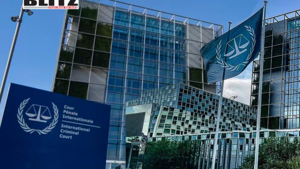News
ICC Under Fire: Sanctions and Withdrawals Amidst Netanyahu Warrant Controversy
In a series of developments that have highlighted the growing tensions surrounding the International Criminal Court (ICC), former U.S. President Donald Trump has reimposed sanctions on the court, while Hungary has announced its intention to withdraw from the ICC.
President Trump recently reinstated sanctions against the ICC, targeting its chief prosecutor, Karim Khan, in response to the court’s investigations into alleged war crimes involving Israel.
The sanctions, which include financial penalties and visa restrictions, are part of a broader effort by the U.S. to undermine the ICC’s authority over American citizens and allies. Trump’s administration has long been critical of the ICC, viewing its actions as a threat to U.S. sovereignty and national security.
Hungary has declared its decision to leave the ICC, a move that coincides with a state visit by Israeli Prime Minister Benjamin Netanyahu, who is currently under an ICC arrest warrant for alleged war crimes in Gaza. Hungarian Prime Minister Viktor Orbán justified the withdrawal by stating that Hungary’s membership in the ICC has been half-hearted” and that the court has become a “political entity” rather than an impartial legal institution.
Hungary’s decision marks a significant departure from its founding role in the ICC and will make it the first European Union country to exit the court. The withdrawal process is expected to take at least a year, during which Hungary will still be obligated to fulfill its duties to the ICC.
The ICC and various international bodies have condemned Hungary for disregarding the arrest warrant against Netanyahu, emphasizing the country’s legal obligations as a signatory to the Rome Statute.
The Netherlands, which hosts the ICC, has reminded Hungary that it must continue to meet its obligations until the withdrawal is complete.
As tensions around the ICC continue to rise, the court faces challenges in maintaining its authority and legitimacy in the face of political opposition from major nations.
The ICC remains a crucial institution for prosecuting serious international crimes, but its effectiveness is increasingly being tested by geopolitical pressures.


















